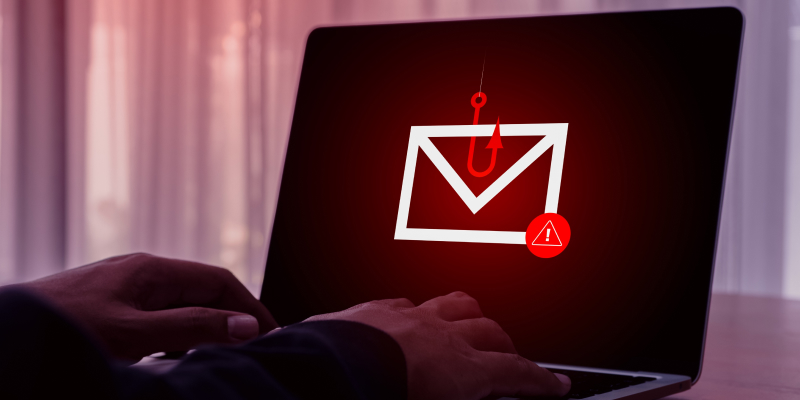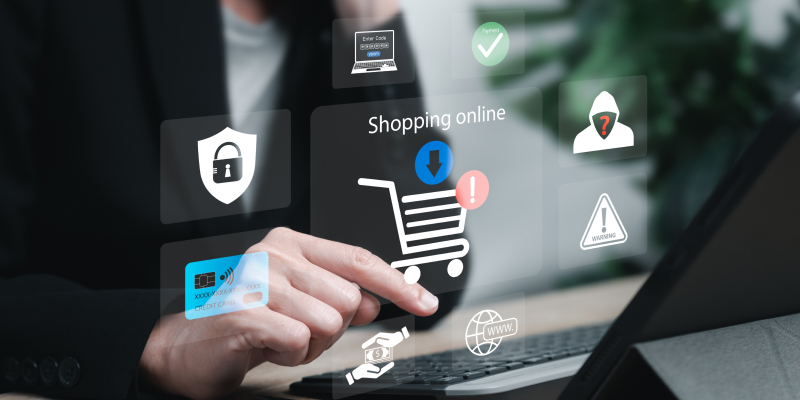Are small businesses really a target for cyberattacks? The unfortunate reality is—yes. Hackers often exploit small and medium-sized businesses’ (SMBs) frequently weaker security systems.
This brings us to a critical question we often hear: “Why cybersecurity is essential for a small business?” Cybersecurity as a business investment transforms from luxury to necessity when you recognize that avoiding it costs far more than implementing it.
Many business owners still believe enterprise-grade protection remains unaffordable—a dangerous misconception. This article breaks down exactly how small businesses can afford enterprise-grade cybersecurity through cybersecurity support services that make robust protection both accessible and practical.
Let’s first examine the staggering actual expenses of cyber incidents to understand why this investment shift is non-negotiable.
The Financial Reality of a Cyberattack Versus Proactive Investment
While cybersecurity costs might make you hesitate, the actual expense of a breach is far greater because it can devastate your finances. Therefore, prioritizing protection is non-negotiable.
Consider This: The small business faces around $25,000 (on average) in direct losses per cyber incident. However, that glaring number excludes the cascading damage of downtime, eroded customer trust, and legal battles that multiply the impact.
Before exploring solutions, let’s categorize the full financial fallout:
- Direct Financial Damage: Immediate outlays for IT recovery, regulatory fines, legal counsel, and cybersecurity support services to contain the breach.
- Indirect Operational Costs: An attack paralyzes operations and halts productivity. With downtime, even brief outages cripple cash flow and stall critical functions.
- Long-Term Reputational Harm: A breach erodes customer trust because people question businesses that fail to safeguard data. This is especially devastating for smaller enterprises where loyalty is hard-won. In fact, 60% of businesses close within six months of a major attack due to overwhelming fallout.
When you weigh these catastrophic expenses against a predictable managed security fee, the choice becomes stark: one path risks ruin, and the other ensures continuity.
This is precisely how small businesses afford enterprise-grade cybersecurity—by reframing it as an operational expense for essential business continuity. But what does “enterprise-grade” protection actually involve, and how has it become accessible? Let’s break that down next.
Enterprise-Grade Security is No Longer Just for Enterprises
Enterprise-grade cybersecurity isn’t about fancy tools; it’s about strategic layering. Think of it like home security. You don’t just rely on a single lock but use a combination of locks, cameras, and an alarm system.
As cyber threats continue to escalate, this multi-layered approach has evolved from being a luxury reserved for large corporations to an essential requirement for organizations across all industries—regardless of size. This transformation positions comprehensive cybersecurity as a “core business necessity,” ensuring that advanced protection becomes accessible to every company.
So, what does this strategic layering actually involve?
- Foundational defenses, such as next-generation firewalls controlling network traffic and advanced endpoint security protecting individual devices.
- Proactive monitoring and detection through AI-powered services and managed XDR (Extended Detection and Response) to integrate endpoint, network, and cloud security for real-time threat spotting.
- The human element, including the implementation of mandatory strong passwords, employee training, and Multi-Factor Authentication (MFA), to fortify against compromised accounts—with many attacks targeting people and privileged accounts, this layer is critical.
- Response and recovery by maintaining automated data backups and a tested incident response plan to minimize downtime during breaches.
Implementing these layers doesn’t require a full-time cybersecurity team or expensive enterprise tools. Instead, this comprehensive protection is now achieved through a more practical and affordable service model—our next area of focus.
Also Read: Implementing Proactive Cybersecurity to Avoid Phishing Mistakes: A Must for SMBs
How Managed Services Make Expert Cybersecurity an Affordable Expense
So, how can small businesses access advanced, enterprise-grade security capabilities without the enterprise-grade cost? The answer lies in partnering with a Managed Security Service Provider (MSSP).
MSSPs allow you to outsource your cybersecurity monitoring and management to a dedicated team of certified experts for a predictable monthly fee. This predictable cost structure directly addresses a common question for small business owners: “How much should a small business pay for cybersecurity?”
Instead of bearing the high cost of hiring a single in-house specialist, you gain access to an entire security team at a fraction of the price.
This partnership directly solves several critical challenges for both business owners and their IT staff:
- Overcoming the Single Point of Failure: Your business is no longer reliant on one IT person—you have a whole team of experts providing 24/7 support and maintenance.
- Reducing Alert Fatigue: Advanced, AI-driven tools filter out the noise, ensuring your team only focuses on the most critical and actionable intelligence.
- Gaining Access to Advanced Technology: An MSSP provides enterprise-level tools that are typically too expensive for a small business to purchase and manage alone.
Ultimately, this approach is how small businesses afford enterprise-grade cybersecurity—by transforming a large, prohibitive capital expense into a predictable operational expense.
You don’t have to build an entire security operations center staffed with technical experts to protect your business and customer data. This leads us to the next area of focus—high-impact defenses you can implement right away.
High-Impact Defenses to Strengthen Your Cybersecurity
While partnering with MSSPs remains the most effective strategy, you can begin strengthening your defenses today: Prioritize high-impact, low-cost security measures that form your essential protective foundation.
- Enforce MFA and strong password policies to directly protect against compromised privileged accounts—your first line of defense against unauthorized access.
- Conduct regular employee awareness training—human error is the primary cause of most breaches. This cost-effective solution teaches staff to recognize threats like phishing scams before they cause damage.
- Establish automated off-site backups as your safety net against ransomware, ensuring business data restoration without ransom payments.
- Keep all software consistently updated through patching to close security holes that attackers actively exploit.
Implementing these foundational practices builds a strong security culture, but proper enterprise-grade protection requires continuous expert management.
Secure Your Business Future by Investing in Cybersecurity Today
Viewing cybersecurity as a strategic business investment plays a significant role in protecting your company’s future—it builds resilience and fosters customer trust.
By leveraging an MSSP, SMBs safeguard critical assets and minimize downtime, paving the way for uninterrupted growth. This shift from prohibitive capital expenses to predictable operational costs is precisely how small businesses afford enterprise-grade cybersecurity while strengthening market credibility.
For organizations in Salisbury, Statesville, and Mooresville, partnering with a trusted IT solutions provider like CMIT Solutions bridges the security gap effectively. Contact us today for a comprehensive IT assessment, and let our cybersecurity support services build your resilient future.



